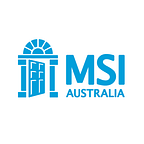Speech by Dr Ruth McNair | The Road to Abortion Equity
The Federal Senate has established an Inquiry into universal access to reproductive healthcare. The Inquiry was called because the government has acknowledged we have a crisis of sexual and reproductive health access.
On Wednesday 9 November 2022, we hosted an online forum to explore what the inquiry terms mean, how it applies in practice and provided a submission template which you can download here to assist people in writing their own.
Dr Ruth McNair gave the following speech at our webinar relating to the LGBTIQ+ community, which you can watch here.
I acknowledge that I’m on Wurundjeri land of the people of the Kulin Nation.
I also wanted to acknowledge the speakers today. I think all of you are using very inclusive language around gender by using words such as women and other people or women and people so I think that speaks a lot for the level of the speakers today and their inclusion.
So I’m talking to trans and gender diverse and non-binary people. Firstly, they tended to have been overlooked in sexual and reproductive healthcare, partly because they haven’t been very visible.
But I think at this point in Australian life and social advances, trans and gender diverse and non-binary people are increasingly seeking out reproductive healthcare and sexual healthcare that’s more appropriate.
Many trans people I’m seeing in my practice are seeking contraceptive advice, they are seeking out abortion services at times, and pregnancy care where possible.
So these issues are really top priority for many trans, non-binary and gender diverse people.
Fertility preservation is another big area that is growing, with more young people seeking out gender affirming care, such as hormones or surgical treatments.
So what’s the issue around the inquiry?
Well, I think it really relates to barriers. This group have enormous barriers to accessing healthcare, and particularly sexual and reproductive healthcare.
One of the big ones is related to economic disadvantage.
Trans, non-binary and gender diverse people are much more likely to be in the lower socioeconomic bands in Australia. That relates to long histories of abuse and violence, of family violence sometimes, of difficulty accessing education both through school and higher degree areas and the TAFE system.
So this all points to a high level of discrimination and that is a huge issue around economic instability.
Many trans and non-binary people lose work during their gender affirmation journey which also adds to this economic burden.
So one of the key points around trans and gender diverse access is enabling publicly funded services first and foremost.
Secondly, barriers relate to fear of discriminatory treatment within healthcare.
Many trans, non-binary and gender diverse people have experienced discriminatory care — being turned away from services whether they be primary, secondary or tertiary, being vilified or abused within services.
These are happening today in 2022. They are not historic issues.
People really talk about it frequently in my clinic, that they are worried about this happening again to themselves or they’ve heard about it happening to other people.
So many trans and gender-diverse people don’t access the service in the first place.
Secondly, and most importantly around access is poor competency amongst healthcare providers.
We really have very little education at this point around transgender, diverse and non-binary people, from medical school up.
I wanted to acknowledge Swathy’s research there and the fact that that is such an important issue for a wide range of topics within medical education.
As a medical service provider I have been acutely aware of the lack of education in my training, and have had to seek it out separately or develop my own training, and that applies to many, many of us.
So one of the key pieces of advice that I would like us to raise in the inquiry is around improving trans and gender diverse and non-binary inclusion in all levels of healthcare education so that providers feel more competent to understand the needs of this group, feel more able and skilled to have open and adequate communication, and really understand where they can provide support.
Finally, the elephant in the room is transphobia. There is still a degree of transphobia in the healthcare setting.
It’s not just about lack of information.
It’s about literally turning away from this group, and I think this is needing to be called out, and we need to be sure that we are really removing as much transphobia as we can through education and training and through advocacy.
Thank you so much.
Dr Ruth McNair AM (she/her) is an Honorary Associate Professor at the Department of General Practice, University of Melbourne and a general practitioner at an inner-Melbourne general practice.
She has clinical and research interests in LGBT health care, lesbian and bisexual women’s mental health, sexual health, LGBT parenting, trans and gender diverse affirmation, and LGBT homelessness.
Ruth is also a medical educator in a wide range of LGBTQ issues. She became a Member of the Order of Australia in 2019 for significant service to medicine and as an advocate for the LGBTI community.
